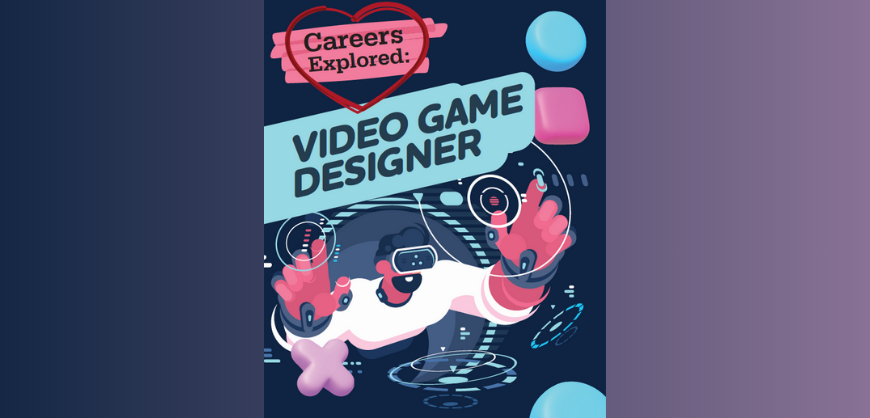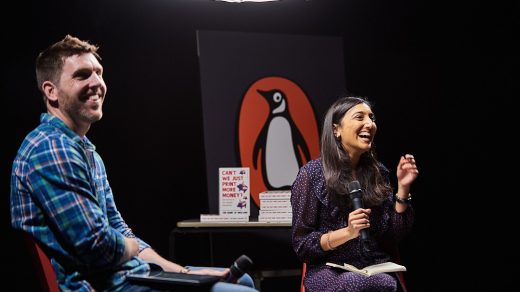Careers explored: Video game designer

Did you know? The first ever video game was created by physicist, William Higinbotham, in 1958 and was based on a simple tennis game. Since then, the gaming industry has grown exponentially with significant changes in the types of games that are available, including how we play them and how we purchase them. Thanks to the internet, online gaming has increased the scope and size of video game culture and connects gamers of all ages from around the globe, creating a social aspect that wasn’t once there. According to recent data, over 3 billion people play video games worldwide.
The continual rise in gaming means video game designers are highly in demand, but that makes it a very competitive industry to enter. It is a dynamic and exciting field that offers boundless opportunities for those with a passion for gaming, creativity, and technical expertise. Designers play a pivotal role in bringing virtual worlds to life, shaping immersive experiences, and pushing the boundaries of interactive entertainment.For those who have just completed their GCSEs, The Studio Liverpool offer a level 3 extended diploma in games, animation and VFX skills.
Over the course of the programme, you will discover a specific pathway that is most suited to you, with the opportunity to develop a portfolio that is personal to your own strengths and aspirations. The course will allow you to develop transferable skills that can be utilised in the digital sector. It is supported by local and national industry partners and you will get to enjoy placements, or undertaking industry standard tasks e.g., games testing. Students are also offered the opportunity to enter the BAFTA Young Game Designer competition, which is a prestigious award that has previously been awarded to The Studio alumni.
Alternatively, studying A-levels or BTECs in graphic design, art, computing, media studies and maths, will help you on your way to securing a career in the sector. Obtaining an undergraduate degree is a common route for aspiring video game designers. There are specific degrees such as BSc Game Design available at the University of Liverpool, which is a three-year course, with an option to work an additional year in industry.
The degree exclusively combines coding, creativity, and critical theory to deliver a distinctive new provision in interactive audiovisual media. This unique interdisciplinary programme is the first of its kind in the Russell Group, combining modules from computer science and the school of the arts to deliver a holistic grounding in how games are made, why they’re made, and what they tell us about the world.Alternatively, Liverpool John Moores University offers a degree in computer games development with exciting paid work placement opportunities with leading games development companies plus access to state-of-the-art facilities.However, having a degree in other fields such as computing, media and even science and mathematics, can also be useful. But keep in mind, most employers will be keen to see CVs filled with relevant experience and games knowledge, in addition to qualifications.
Ellise Collins, a video game designer at Lucid Games, said: “I began my journey by studying computer animation at university, not knowing if it was fully for me or not. The only thing I did know was that I wanted a way to express the ideas I had in my head and thought art was the only way that I could.”
Before, during or after studying, it is important to seek work experience opportunities. Whether it is one day a week, a two week placement or a short-term project, furthering your knowledge and skillset is crucial and will help you stand out from the rest of the applicants when it comes to applying for your first permanent role.
Ellise adds: “After university I was lucky enough to get an internship at a small mobile game studio in London, with very little pay and far from my Welsh hometown. It was mentally hard work but over time I got to learn a lot of different areas of game development and slowly transitioned out of animation and into game design – big thanks to the supportive leadership.”
Over time, you will need to develop a portfolio of work so that you can showcase your abilities to prospective employers. Why not build up experience by taking part in game jams? These are game development competitions where participants are tasked with making a game from scratch, in line with the theme of the jam, and within a specified time frame. These competitions can range from as little as 12 hours to over two weeks. Game jams are a great way of connecting with other likeminded gamers and allows you to put your development and design skills to the test. Entry level positions are highly competitive in the industry, with salaries starting from £17,000 to £18,000, depending on location.
Starting out you will quickly learn how designers imagine almost everything about a game, including its plots, characters, visual designs, and layouts. From concept to completion, game designers collaborate with a variety of teams, including artists, programmers, and writers, to craft compelling narratives, captivating gameplay mechanics, and appealing visuals. Michael Slape, junior game designer from independent video games studios, Rebellion, explains: “In game design, you have real freedom to take an idea and run with it. Seeing something you have originally thought of go through the entire development process and end up on a screen is an incredibly rewarding experience. Also, you primarily work on just one aspect of a game, so it’s also great to see how it fits together with other people’s ideas. This gives you a real sense that you’re contributing to something much greater.”
Ellise adds: “I love getting to work with a range of people in different areas. As a designer you need to get to know the team, understand how they communicate, their skill set and knowledge, and combine that all together to make ideas a reality!”
When applying for your first role, you may not necessarily find the exact role you’re looking for on paper but that doesn’t mean you should dismiss it.Matthew Buxton, CEO of MYSTiC GAMES, says: “When you’re first looking for roles, take any job you get in the industry to get a foot in the door. Don’t forget, your career will be long – there is time to work your way to where you want to be. Don’t fail to start your career when you’re surrounded by people that are willing to help you, and believe in you.”
The road to becoming a successful video game designer may be challenging, but it is a journey filled with rewards. As the industry continues to evolve, you may have the opportunity to work on groundbreaking projects, explore emerging technologies like virtual reality and augmented reality, and make a lasting impact on the gaming community.This career is not only a chance to turn a passion for gaming into a fulfilling profession but also an opportunity to shape the future of interactive entertainment.
Advice from the experts:
Michael Slape, junior game designer at Rebellion: “First and foremost, I would say focus on your ability to communicate. Game development is inherently collaborative, and you will need to work alongside a wide range of different specialisms (animators, coders etc.). So, the ability to communicate what you’re currently working on, and articulate what you need from others, is crucial.”
Edward Waterhouse-Biggins, designer at Rebellion: “We often see students obsess over the job title they give themselves on university projects, but this isn’t actually that important. Instead, I would suggest putting together an impressive portfolio that demonstrates the process behind your work – what is my design, how did I achieve it, etc. The idea is often only one percent of the work, the rest is the process. Also, in an interview situation, be mindful of expressing how you can improve on your next project – nothing is perfect!”
Ellise Collins, video game designer at Lucid Games: “Don’t be afraid to reach out, designers love talking about design. I’m sure if you look up some on LinkedIn they’d happily answer some questions.”
Matthew Buxton, CEO of MYSTiC GAMES: “Always believe in your team project, and make sure to learn to code/script and make that game project shine. It’s easy to fall back into overcomplicating things or biting off more than you can chew, but if you can make something small, but make it completely awesome then you win.”







